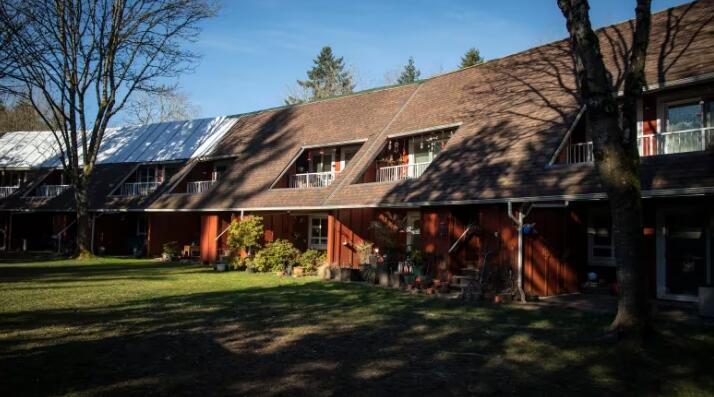B.C. welcomes federal housing dollars, but co-ops disappointed by timeline

$1 billion in funding has been promised for affordable housing across Canada. How much will B.C. get?
B.C. leaders say although they welcome Ottawa’s affordable housing funding pledge, they worry it will amount to few projects over the next four years, while co-op housing advocates say they’re disappointed by the plan’s lack of urgency.
On Tuesday, Ottawa pledged $1 billion for non-profit, co-op, and public housing providers to build more than 7,000 new homes by 2028.
“The billion dollars they’ve said that’s going to be additional for building affordable housing is not very much money when you think it’s going across the country,” said B.C. Housing Minister Ravi Kahlon on Wednesday.
“So that could be maybe $70 million, a couple of projects in British Columbia,” he said.
“Although we welcome the dollars, we believe more needs to be done. There’s still some details we need to hear from the federal government.”
Ottawa’s Fall Economic Statement also pledged to remove GST for the construction of new rental co-op housing, and additional funding for the yet-to-be-launched Co-operative Housing Development Program.
Thom Armstrong, CEO of Co-op Housing Federation of B.C., called the measures well-intended but raised alarm over the lack of a timeline, with dollars only starting to roll out in 2025.
“I’m pretty disappointed in the overall strategy,” said Armstrong. “The problem really is with the scale and the timing of the response. We’re in a housing crisis.”
Armstrong says over the last census period, Canada lost 378,000 homes with rents under 1,000 per month — 100,000 of which were in B.C. — while rents have climbed 30 per cent over the same time period.
“I’m baffled as to why an economic recovery would have to wait until 2025-2026 to address what’s a burning crisis right now.”

Housing co-operatives have existed in Canada for decades and represent something of a middle ground between renting and owning — security of tenure without the often-prohibitive cost of a down payment. Because they operate on a break-even basis, co-ops are often much cheaper than market rentals.
Co-ops tend to have units at monthly rates below average rents. In October, the average rent for a one-bedroom in Canada reached $1,906; in Vancouver it was $2,872, according to the latest Rentals.ca report.
There are just over 92,000 units of co-op housing in Canada, according to the Co-operative Housing Federation of Canada (CFHC).
The vast majority of them were built through dedicated programs in the 1970s and ’80s, because governments at the time recognized there was a housing crisis, said Armstrong.
Few new co-op housing developments have been built in Canada since the early 1990s. With mortgages and rents increasingly out of reach for many Canadians, advocates say co-op housing is a model that should be massively scaled up.
Mounting construction costs
Still, Courtney Lockhart, associate director of public affairs and policy for CFHC, said the GST rebate could prove to be a particularly effective tool.
“It really recognizes the importance of building more non-market housing in Canada,” said Lockhart.
“By taking away some of the tax pressure on some of those new co-op projects, that will mean that co-ops can reduce the debt load on those projects, which means reducing costs, and in the non-profit model, that means rent will be lower, housing costs will be lower.”

Lockhart says that while building up capacity is urgent — construction costs are only increasing as is demand for new units — the government investments signal a positive shift after what’s been a 30-year drought in federal funding.
CFHC says it’s working with Canada Mortgage and Housing Corporation to co-design the federal Co-operative Housing Development Program, which is expected to roll out in 2024.
She said the program aims to facilitate new co-op construction through a series of grants and loans.
Related News
Trade war, slumping border traffic: What does that mean for the Gordie Howe bridge?
Amid U.S. President Donald Trump’s tariffs which have triggered a trade war with Canada, cross-border trips haveRead more
Trump administration threatens Harvard’s foreign enrolment, tax-exempt status
U.S. Homeland Security Secretary Kristi Noem speaks during an event on April 9, in Washington,Read more
